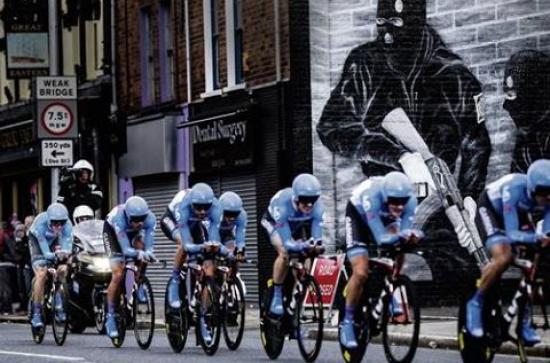
A new fresh prospective focused on the changes we have seen in Northern Ireland in the 20 years since the ceasefire is needed, according to a leading Maynooth University Sociologist.
Speaking at a conference in which academics and civil society debated ‘Northern Ireland Twenty Years After the Ceasefires’, Dr. Colin Coulter, Senior Lecturer at the Maynooth University Department of Sociology said “we need not only to explore the frequently addressed pre-occupations and tensions in Northern Ireland between unionists and nationalists, but also to offer fresh perspectives focusing on the complex and diverse sociological changes we have witnessed over the past two decades since the Ceasefires.”
The conference aimed to offer a critical examination of what has changed and what has remained the same in Northern Ireland two decades on from the optimism surrounding the ceasefire.
“We will provide a valuable snapshot of a society emerging from a complex process of conflict transformation. If there is a common thread emerging it is that there is a fundamental ambiguity of the progress that has been achieved. Northern Ireland society is in a period of transition and continues to painstakingly navigate the road towards a still undecided future," Dr Coulter said.
Speakers at the conference addressed sociological issues such as gender prejudice, class divisions, the impact of global austerity and young people’s experiences of growing up in the shadow of the Troubles.
Among the eminent contributors to the event were Professor Liam O’Dowd (QUB), Professor Patricia Lundy (UUJ), Professor Peter Shirlow (QUB), Professor Michael Cronin (DCU), Professor Joe Cleary (Maynooth University), Dr. Colin Coulter (Maynooth University), Niall Gilmartin (Maynooth University) Dr. Katy Hayward (QUB), Professor Honor Fagan (Maynooth University), Dr. John Nagle (University of Aberdeen), Dr. Fidelma Ashe (UUJ) and Dr. Kevin Bean (Institute of Irish Studies, Liverpool).
The conference was organized by Maynooth University’s Departments of Sociology, English and Anthropology in collaboration with the Institute for the Study of Conflict Transformation and Social Justice, Queen’s University Belfast.
